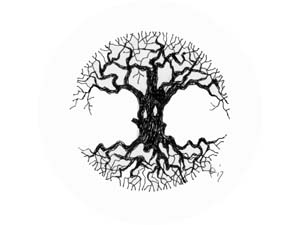Angela Roothaan
August 03, 2017, angelaroothaan.wordpress.com
“How ‘to talk religion’? Of religion? Singularly of religion today? How dare we speak of it in the singular without fear and trembling, this very day?”
Derrida 2002, Acts of Religion, p. 42.
This Derrida quote was above the abstract I sent in for the 23rd ISAPS conference, recently held in Vienna. My paper was titled “Bantu Philosophy” and the problem of religion in intercultural philosophy today. Going by the comments and questions after presenting my paper, I think I succeeded to bring some fresh questions to the debates on Bantu Philosophy, the 1945 publication by Placide Tempels, a Franciscan missionary in what then was called the Belgian Congo. Tempels’ book, which first appeared in Dutch and was later translated to French and English, kicked off the many debates on the existence and nature of African philosophy. Is philosophy localized, or universal? Was his presentation of a culturalized ontology a well-meant first attempt at intercultural dialogue, or can it not be taken outside of the colonial context in which Tempels worked? Or could both be true? In my presentation I wanted to go into another matter: Tempels’ attempt to sketch a solution to the loss of religiosity in what he called the age of industrialization — in the colonialized part of Africa where he lived as well as in Europe.
Although he culturalized ontology, Tempels still spoke of religion in the singular — a thing which we nowadays find hard to do, according to Derrida. Now there is much talk of religions, in the plural: we speak of the dialogue of religions, or their confrontation. To talk of religion, in the singular — to ask whether there is any meaning in religion as such, seems an obsolete question. Especially in philosophy. This would imply, namely, to discuss religious anthropology in a transcultural manner: to ask what human beings share in terms of religious desire. Tempels now, did exactly that. For him, ‘Christian doctrine’ was about receiving as a reality ‘the strengthening of life’. For him religion was all about:
“the aspiration towards the strengthening of life, the raising of it, the taking of it into the supernatural, its participation in the constant intensification and internal growth of our life through union, living union, with God.”
This rather unusual wording of what he saw as the essence of Christian religiosity he derived from his construction of what he saw as ‘Bantu ontology’ — which would be an ontology of ‘vital force’. In his view the people he had come to live amongst in the Congo had understood life, human life, and life in general, as a continuous possibility of intensification or decrease in vital force. Cursing another is meant to decrease his vitality, blessing her or him does the opposite. Tempels’ initial motive to investigate and describe what he saw as original Bantu culture had sprung from his observation that all missionary work in Africa had actually failed, as European culture was brought over to African peoples in its new, materialistic and spiritually empty version, while religious teachers had never tried to understand the soul of those they aimed to convert, and therefore had not really conversed with them.
In the end however Tempels made an unusual double hermeneutical move — to first interpret what his African interlocutors taught him in terms of a metaphysics of life force, and to secondly reinterpret in its terms the languishing catholic metaphysics of salvation.
This made him take Christ as the enhancer of life force per se, and as the counterforce in an age which, he feared, was about to empty the human person (African and European alike) of its soul, seeing progress solely in terms of industrialization and economic expansion.
This was not just a hermeneutical circular movement avant Gadamer, as it simultaneously upheld the neo-scholastic claim to metaphysical knowledge of ultimate divine reality. Thus, Tempels culturalized and contextualized what was supposed to sustain and transcend the contingent phenomenal world.
In my presentation I asked whether we should see this in the light of his confused non-professional philosophy (Tempels just took the two years of philosophy required in the study for the priesthood), or whether in the end his work contains elements for an answer to Derrida’s question: how to speak of religion without fear and trembling. If it does, perhaps some light can be shed in the discourse which only speaks of religious difference, without seeing how religion should be analyzed in a contextualized manner — as intrinsically related to the political and economic struggles that disturb our present times.
If we follow that road we could see that any philosophical search for truth (post — cultural relativism) has to move through analyses of the political and the economical. In Tempels work we see the beginnings of such a move — where he relates religion (in the singular: be it Christianity or traditional African religiosity) to the historical situation of industrialization and colonization — a situation that advertises itself as civilization, but Tempels doubts this. He tries the idea whether it might not be better in a sense for Europeans to let themselves be taught by those they allegedly came to civilize.
“We get the impression that these masses want to rise from their alleged lowliness, clothing themselves in the knowledge of their own lore and in their conception of the world; and thus standing before and looking down upon the small group of Westerners […]”.
To state, as Mutombo Nkulu-N’Sengha does in his article in the Encyclopedia Britannica, that Tempels remained bound to a colonial outlook because he saw Christianity as superior to traditional African religion is too fast a conclusion to my view. His Christianity did not speak (as traditionally was done in European religious discourse) of salvation of the eternal soul, but of a continuous intensification and internal growth of life through union with God — which to my view is a Christianity which had been transformed through its contact and dialogue with ‘Bantu philosophy’ — with his observation that ‘there is to be found in the depths of the Bantu soul an aspiration, an irresistible allurement towards an infinite strengthening of life.’ (81) This is not just a reformulation of traditional Christian ‘talk of religion’ — it is quite another talk. Of religion, across cultural and theological difference, positioned over against what Tempels saw as the false progress of industrialization and the only materialistic ‘development’ through colonialism.









